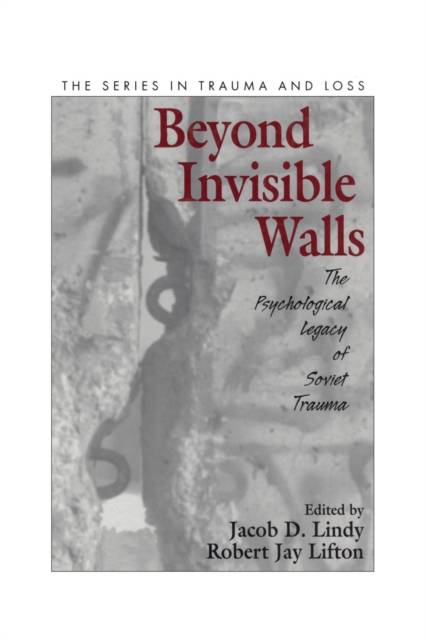
- Afhalen na 1 uur in een winkel met voorraad
- Gratis thuislevering in België vanaf € 30
- Ruim aanbod met 7 miljoen producten
- Afhalen na 1 uur in een winkel met voorraad
- Gratis thuislevering in België vanaf € 30
- Ruim aanbod met 7 miljoen producten
Zoeken
Beyond Invisible Walls
The Psychological Legacy of Soviet Trauma, East European Therapists and Their Patients
€ 105,45
+ 210 punten
Omschrijving
When the Berlin Wall fell in 1989, Westerners watched those who had survived the era of Soviet trauma emerge into what we hoped would be the exhilarating light of freedom. What we have witnessed, however, is a slow and painful process of progression and regression, of hope and disillusionment, of unexpected psychological barriers: invisible walls that block the progress we had hoped for. In Beyond Invisible Walls, East European therapists, themselves, draw a compelling picture of the waves of trauma that their people endured, the institutions of trauma that remained well after Stalin's era, and their impact on survivors and their families. They describe the psychological remnants of those years: walls that confine people by unconsciously preserving old adaptations to political terror, walls that divide one part of the mind from another, and walls that rise between one generation and the next. These therapists' stories allow us a striking glimpse into how patients' trauma evokes the therapists' own wounds; how both speaker and empathic listener find their way to a healing process, how the two begin to dismantle these invisible walls.
Specificaties
Betrokkenen
- Uitgeverij:
Inhoud
- Aantal bladzijden:
- 270
- Taal:
- Engels
- Reeks:
Eigenschappen
- Productcode (EAN):
- 9781138011953
- Verschijningsdatum:
- 19/03/2014
- Uitvoering:
- Paperback
- Formaat:
- Trade paperback (VS)
- Afmetingen:
- 152 mm x 229 mm
- Gewicht:
- 362 g

Alleen bij Standaard Boekhandel
+ 210 punten op je klantenkaart van Standaard Boekhandel
Beoordelingen
We publiceren alleen reviews die voldoen aan de voorwaarden voor reviews. Bekijk onze voorwaarden voor reviews.










